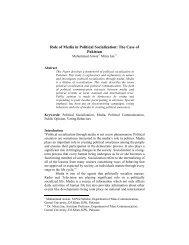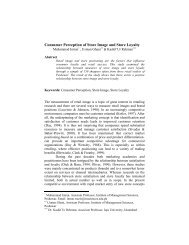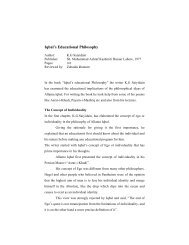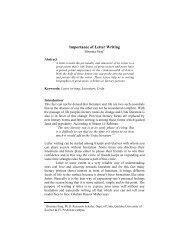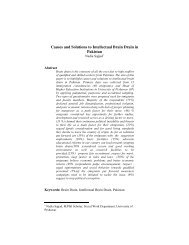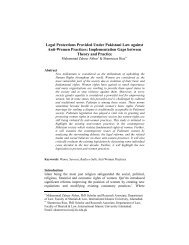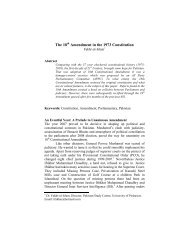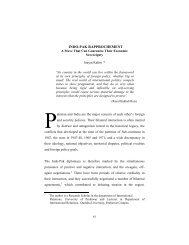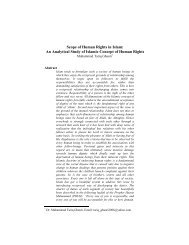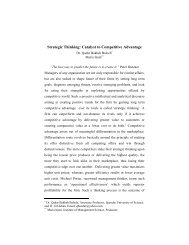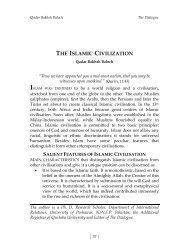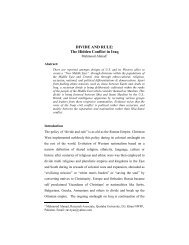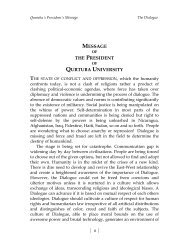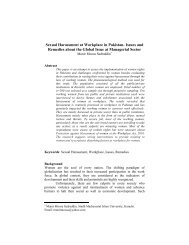COLD WAR POLITICS OF SUPERPOWERS IN SOUTH ASIA Abstract
COLD WAR POLITICS OF SUPERPOWERS IN SOUTH ASIA Abstract
COLD WAR POLITICS OF SUPERPOWERS IN SOUTH ASIA Abstract
Create successful ePaper yourself
Turn your PDF publications into a flip-book with our unique Google optimized e-Paper software.
determined to hold the British in India, as much as the British empire was<br />
determined to prevent the czar’s forces from further advantaging themselves at<br />
the expense of a weak Iran and an even weaker Afghanistan. 62 Moreover, the<br />
Soviet leadership repudiated czarist conquest in the region of Central Asia,<br />
Asia Minor and the Indian Ocean and virtually all its expansionist policies of<br />
tsardom and “Great Game” (Central Asia and Afghanistan) were part of the<br />
Soviet ambition and advancement in the region. The Soviet leaders<br />
vehemently supported the emancipation of South Asia from the clutches of<br />
British imperialism and Lenin’s remarks (1916) about the impending<br />
emancipation movements in the European colonies were thought provoking:<br />
We shall exert every effort to foster association and merger<br />
with Mongolians, Indians, (subcontinent people) Egyptians.<br />
We believe it is our duty in our interest to do this-we shall<br />
endeavour to render to these nations, more backward and<br />
oppressed than we are, “disinterested cultural assistance.”<br />
We will help them pass to use of machinery, to the lightening<br />
of labour to democracy, to socialism. 63<br />
The Russian revolution of 1917 had also a great impact on the emancipation<br />
movements in South Asia. Lenin once said,: “the road to Paris passes through<br />
South Asia and this region is a source of European exploitation especially and<br />
Pacific Asia and Africa in general.” 64 Lenin’s views about European imperialism<br />
were indicated when a number of Asian and African countries received<br />
emancipation from various European colonial powers. In October 1917, the<br />
League of the Liberation of the East, based in Moscow, had suggested for India<br />
an important route to Asia. The Soviet influence in India was considered<br />
imperative for a wider Russian role in Asia. However, the Soviet Union<br />
reestablished its interest in India when the Communist Party of India (CPI) was<br />
founded by Satya Bhakta. Moreover, the Indian Nationalist leaders, especially<br />
85



